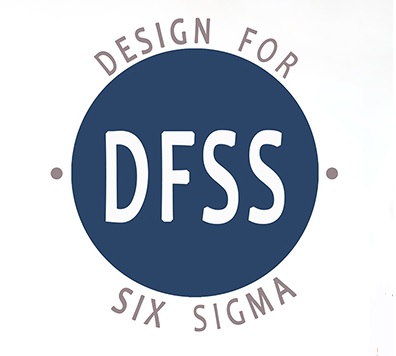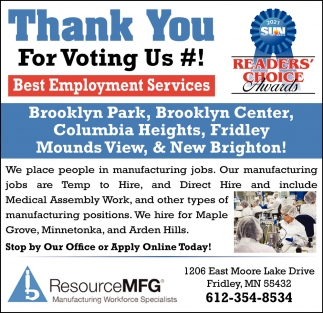
The HEROES PROGRAM provides affordable housing for military families and homeowners who want to save money. It's a collaboration with radio stations, websites, and community groups throughout the country to honour acts of bravery by servicemen and women. The site connects military families and legal experts who are specialists in child support and military law.
Heroes To Heroes is a 501(c)(3) nonprofit organization that provides peer support and suicide prevention to combat veterans. Their programs include a 12-month curriculum focusing on emotional strength, a 10-day trip to Israel, and spiritual healing. In addition, Heroes To Heroes also helps veterans who have suffered Moral Injury. It offers suicide prevention training and peer assistance to veterans who have been affected by PTSD or combat injuries.

Hiring Our Heroes works to find job opportunities for our nation's veterans. The program helps to identify people from all backgrounds including veterans, active-duty military families, as well as other members the military community. This program helps veterans find work and offers assistance to military families, especially for those who have children. In addition, the organization offers a scholarship for children of veterans, as well as other forms of assistance.
Heroes MAKE America helps veterans identify and place them in jobs. It also offers career readiness training, certification and career readiness preparation. The program has helped place 250 graduates with companies in 42 different states. They work with local technical college and organizations to help veterans find jobs. The program has expanded since COVID-19, and will soon launch a training site in Georgia. Fort Riley is seeing its programs grow as well. The program has placed graduates in 136 different military occupation specialties. Veterans looking for employment in the manufacturing sector will find this program a valuable resource.
Fort Riley will continue to expand its Heroes MAKE America program and will introduce new features for 2021. They will include virtual reality simulations. This virtual training program will allow transitioning military personnel to take part, even if their computer is not available. They will be able connect with other veterans who participated in the program. The program will also continue to expand after COVID-19, and will continue to help veterans find jobs in the manufacturing industry.
The HEROES leadership project is a group that brings together experience and talent to build a vibrant community for youth. The group also provides a supportive environment where youth feel safe and supported. It is also part in the Re-Envisioning Foster Care in America Movement. They share their skills, experiences, and voices to help create a more supportive climate for youth.

Homes for Heroes provides discounts on real-estate agent commissions as well as home inspection fees. The program is a huge success and has spread nationally. The program offers discounts to active or former military members, teachers, and health care professionals. On average, a Hero saves about $2400.
FAQ
What does it take to run a logistics business?
A successful logistics business requires a lot more than just knowledge. You must have good communication skills to interact effectively with your clients and suppliers. You will need to know how to interpret data and draw conclusions. You need to be able work under pressure and manage stressful situations. To increase efficiency and creativity, you need to be creative. You will need strong leadership skills to motivate and direct your team members towards achieving their organizational goals.
You should also be organized and efficient to meet tight deadlines.
How does a production planner differ from a project manager?
The difference between a product planner and project manager is that a planer is typically the one who organizes and plans the entire project. A production planner, however, is mostly involved in the planning stages.
What does it mean to be a manufacturer?
Manufacturing Industries are those businesses that make products for sale. These products are sold to consumers. These companies use various processes such as production, distribution, retailing, management, etc., to fulfill this purpose. They produce goods from raw materials by using machines and other machinery. This covers all types of manufactured goods including clothing, food, building supplies and furniture, as well as electronics, tools, machinery, vehicles and pharmaceuticals.
Statistics
- According to a Statista study, U.S. businesses spent $1.63 trillion on logistics in 2019, moving goods from origin to end user through various supply chain network segments. (netsuite.com)
- It's estimated that 10.8% of the U.S. GDP in 2020 was contributed to manufacturing. (investopedia.com)
- You can multiply the result by 100 to get the total percent of monthly overhead. (investopedia.com)
- (2:04) MTO is a production technique wherein products are customized according to customer specifications, and production only starts after an order is received. (oracle.com)
- In the United States, for example, manufacturing makes up 15% of the economic output. (twi-global.com)
External Links
How To
How to Use Lean Manufacturing in the Production of Goods
Lean manufacturing refers to a method of managing that seeks to improve efficiency and decrease waste. It was developed in Japan between 1970 and 1980 by Taiichi Ohno. TPS founder Kanji Tyoda gave him the Toyota Production System, or TPS award. Michael L. Watkins published the "The Machine That Changed the World", the first book about lean manufacturing. It was published in 1990.
Lean manufacturing is often defined as a set of principles used to improve the quality, speed, and cost of products and services. It emphasizes the elimination of defects and waste throughout the value stream. Lean manufacturing is called just-in-time (JIT), zero defect, total productive maintenance (TPM), or 5S. Lean manufacturing seeks to eliminate non-value added activities, such as inspection, work, waiting, and rework.
Lean manufacturing is a way for companies to achieve their goals faster, improve product quality, and lower costs. Lean manufacturing has been deemed one of the best ways to manage the entire value-chain, including customers, distributors as well retailers and employees. Lean manufacturing is widely practiced in many industries around the world. Toyota's philosophy, for example, is what has enabled it to be successful in electronics, automobiles, medical devices, healthcare and chemical engineering as well as paper and food.
Five principles are the basis of lean manufacturing:
-
Define Value: Identify the social value of your business and what sets you apart.
-
Reduce Waste - Remove any activity which doesn't add value to your supply chain.
-
Create Flow: Ensure that the work process flows without interruptions.
-
Standardize and simplify - Make your processes as consistent as possible.
-
Build relationships - Develop and maintain personal relationships with both your internal and external stakeholders.
Although lean manufacturing has always been around, it is gaining popularity in recent years because of a renewed interest for the economy after 2008's global financial crisis. Many businesses have adopted lean manufacturing techniques to help them become more competitive. According to some economists, lean manufacturing could be a significant factor in the economic recovery.
With many benefits, lean manufacturing is becoming more common in the automotive industry. These include higher customer satisfaction levels, reduced inventory levels as well as lower operating costs.
It can be applied to any aspect of an organisation. Lean manufacturing is most useful in the production sector of an organisation because it ensures that each step in the value-chain is efficient and productive.
There are three main types:
-
Just-in-Time Manufacturing: Also known as "pull systems", this type of lean manufacturing uses just-in-time manufacturing (JIT). JIT means that components are assembled at the time of use and not manufactured in advance. This approach reduces lead time, increases availability and reduces inventory.
-
Zero Defects Manufacturing (ZDM),: ZDM is a system that ensures no defective units are left the manufacturing facility. It is better to repair a part than have it removed from the production line if it needs to be fixed. This applies to finished products, which may need minor repairs before they are shipped.
-
Continuous Improvement: Continuous Improvement aims to improve efficiency by continually identifying problems and making adjustments to eliminate or minimize waste. Continuous improvement involves continuous improvement of processes and people as well as tools.